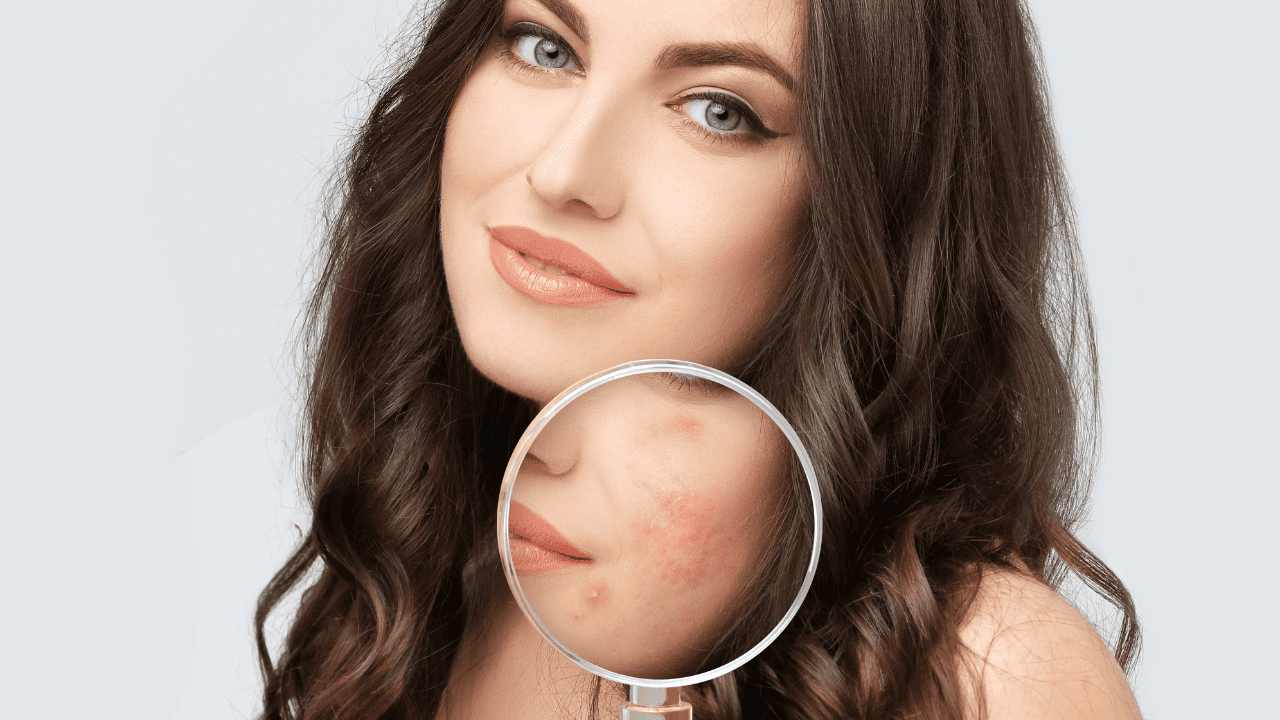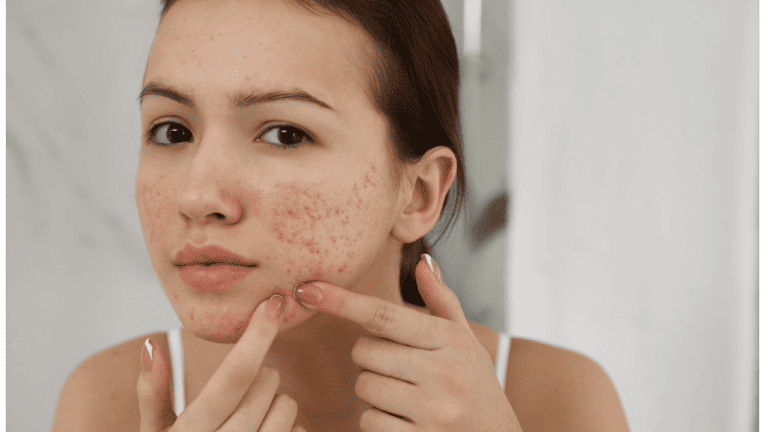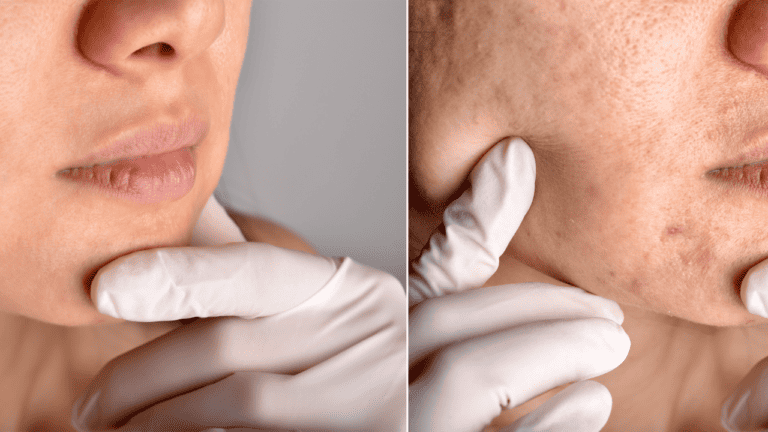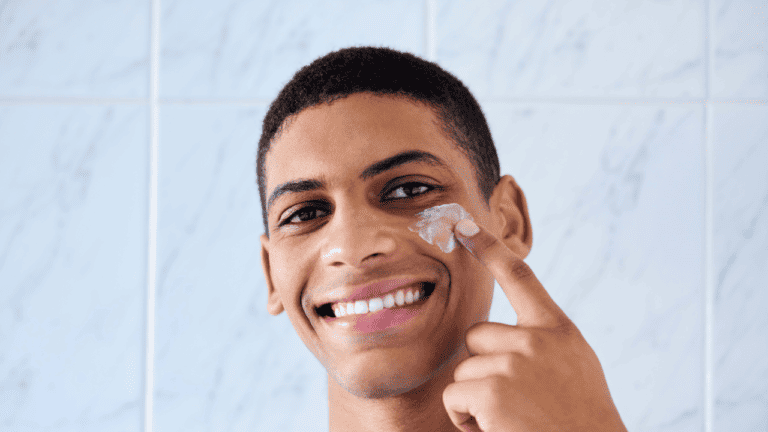To fade boxcar scars, a consistent collagen stimulating skincare routine and a combination of professional skin resurfacing treatments should be implemented as soon as possible.
Our aim in this article is to provide you with a clear understanding of how to effectively treat them, and most importantly, how to prevent them. Whether you’re considering professional treatments or looking for at-home care tips, we’ve got you covered.
Key takeaways
- To treat boxcar scars, professional options include laser therapy and adding a gentle acid to your skincare routine.
- Prevention is crucial; early acne treatment and avoiding skin irritation can significantly reduce the risk of developing boxcar scars.
- Patience and emotional support are essential, as healing and improvement of skin texture take time and vary from person to person.
Professional Treatments
Dermabrasion For Boxcar Scars
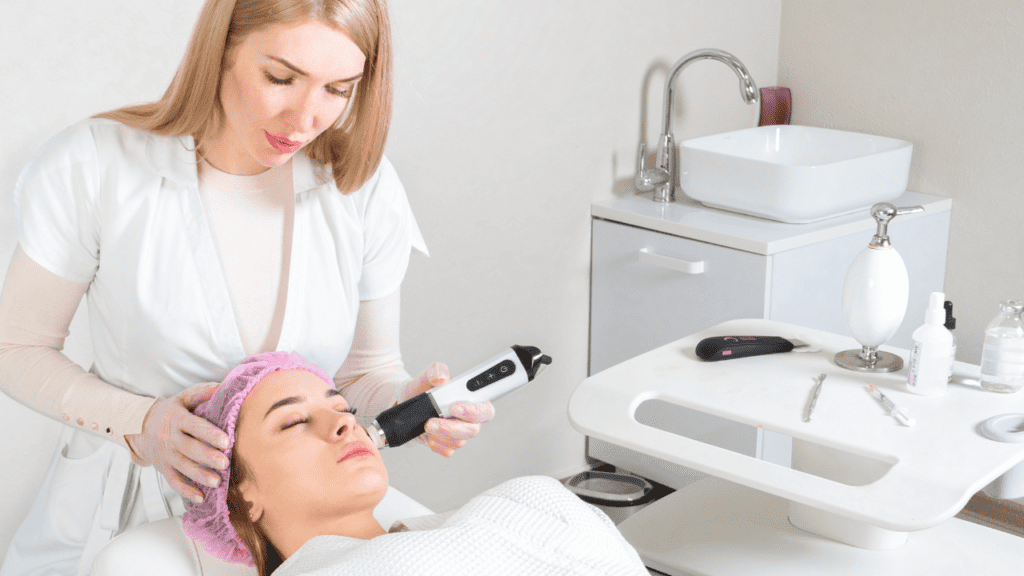
Dermabrasion is an intensive procedure where a dermatologist uses a special instrument to sand the top layers of skin. Not to be confused with microdermabrasion, which does not go as deep as dermabrasion, dermabrasion sometimes even causes bleeding because of the depth it reaches.
This process can significantly reduce the depth of boxcar scars and even out the skin’s surface. Recovery time varies, but patients can expect some redness and sensitivity as the skin heals.
Laser Therapy For Boxcar Scars
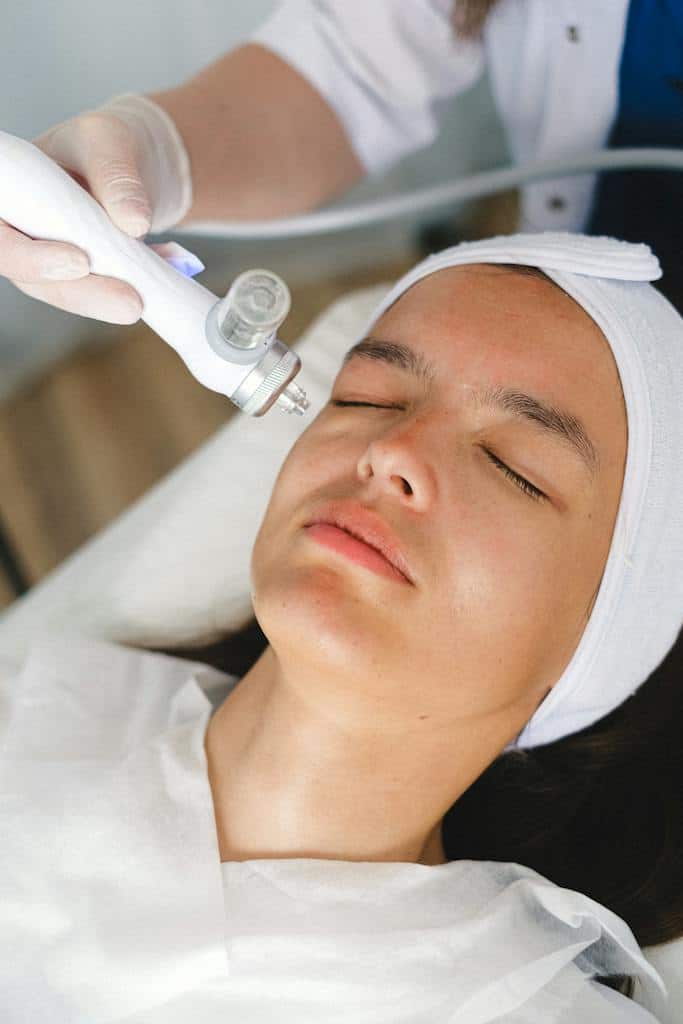
Laser therapy is a popular choice for treating boxcar scars because it effectively resurfaces the skin, depending on the type of laser, it can have minimal downtime or require a long downtime if it targets deeper scar tissue. There are 2 types of laser therapy to consider for boxcar scars:
Fractional CO2 Laser Therapy
Fractional CO2 Laser Therapy removes the enter top layer of the skin and during the first 24 hours after the appointment your skin may feel as though it was sunburned. Downtime is about 5 to 10 days and it’s important to use sunscreen after.
Fractional Erbium Laser Therapy
Fractional Erbium Laser Therapy is meant for more superficial scars and it requires less downtime. This may be better for people with darker skin as well as they require more care and need to be careful with laser therapy so that they do not get an uneven skin tone as laser therapy can target melanin and fade pigmentation.
Chemical Peels For Boxcar Scars
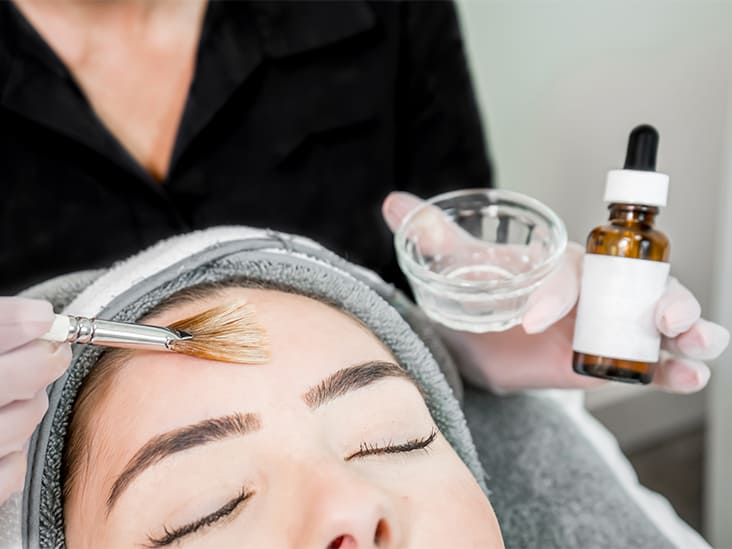
Chemical peels involve applying a chemical solution to the skin, which exfoliates the damaged top layers. This treatment is effective for less severe boxcar scars and can improve overall skin texture. There are various types of peels, ranging from superficial to deep, and a dermatologist can recommend the best option based on the scar’s severity.
Microneedling
Microneedling involves using fine needles to create tiny punctures in the skin and in doing so stimulates the skin’s natural healing process, boosting collagen production and as a result filling in scars.
Especially for boxcar scars, micro needling works well. Keep in mind, for ageing skin and wrinkles a needle length of 0.5mm or 1.0mm is usually recommended, but for our case, acne scars, a needle length of 1.5-2mm is better to reach deeper into the skin.
The procedure is relatively less invasive and suitable for various skin types in comparison to treatments like laser therapy as there is much less risk of damaging the pigmentation of dark skin types.
Fillers
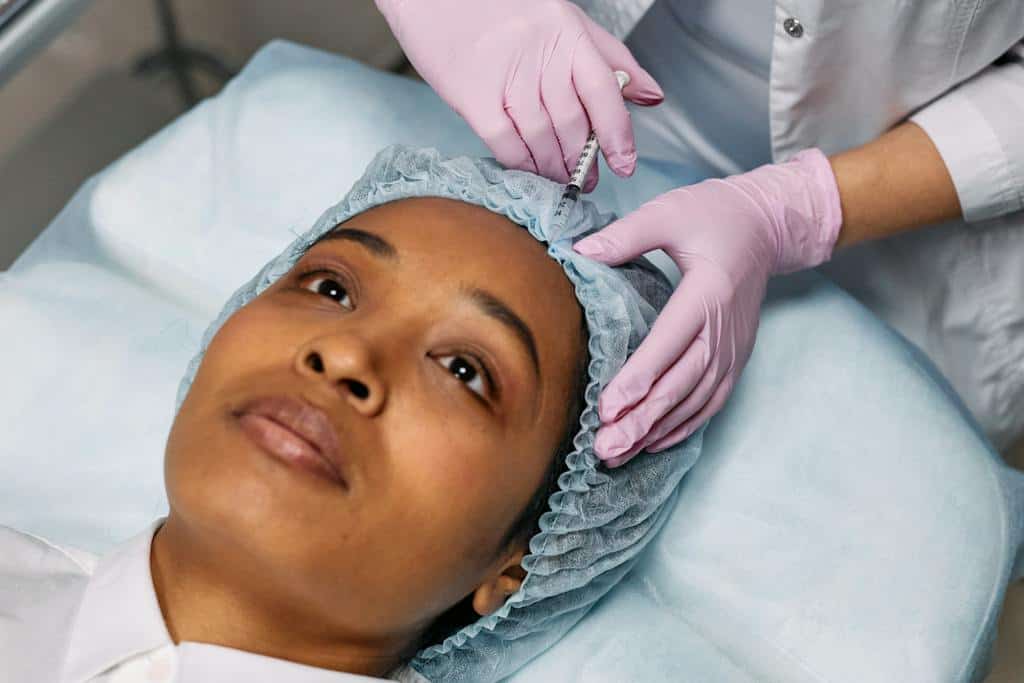
For temporary improvement, dermal fillers can be injected into boxcar scars to raise the depressed areas to the level of the surrounding skin. Although the results are immediately, since fillers are absorbed by the body over time, they require periodic treatments to maintain the effect and this can be expensive long term.
While you can definitely choose to use dermal fillers, combining this with laser therapy or micro needling would help the scars fade over time, meanwhile you can already experience a more even skin tone due to the fillers. Be rest assured, laser therapy does not “melt” the filler so they can be used according to the dermatologists’ discretion.
Surgical Options
In some cases, surgery might be the best option. Techniques like subcision, where the fibrous bands causing the scar are cut, can be effective. Surgical options are generally considered when other treatments have not been successful.
Consultation with a Dermatologist
Before deciding on a treatment, it’s vital to consult with a dermatologist. They can assess the scar type, your skin type, and medical history to recommend the most suitable treatment plan.
Home Remedies and Skincare for boxcar scars
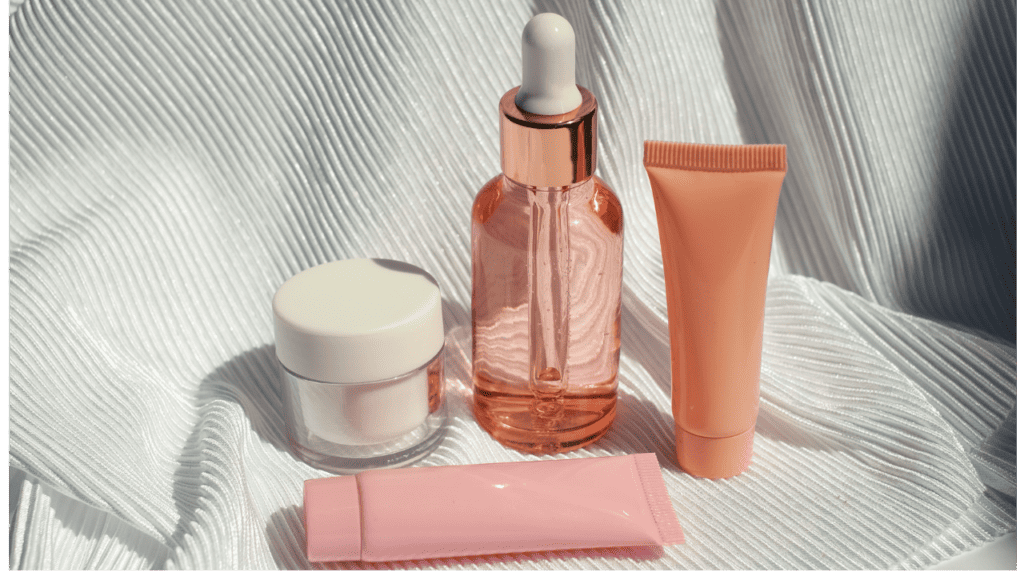
Over-the-Counter Treatments
To treat boxcar scars, look for products containing retinoids or alpha hydroxy acids (AHAs), BHAs, LHAs or PHAs which promote skin cell turnover and collagen production. Consistent use can gradually improve the appearance of scars.
Skincare Routine
Adopting a gentle skincare routine is crucial. Adding a Vitamin C serum can be useful to reduce the skin’s ability to create hyperpigmentation. Avoid harsh scrubs or products that can irritate the skin. Moisturizing regularly and using a gentle cleanser can help maintain healthy skin. Avoid picking at scars, as this can exacerbate scarring.
Sun Protection
While we try to UV rays can darken scars and make them more noticeable. Use a broad-spectrum sunscreen with at least SPF 30, and consider wearing hats or using physical barriers for added protection.
Preventive Measures

Preventing Boxcar Scars from Developing
Prevention is always better than cure, especially when it comes to skin scarring. The most effective way to prevent boxcar scars is by managing acne outbreaks promptly and effectively. Here are some tips:
- Early Treatment of Acne: Seek treatment for acne early to prevent it from worsening. Over-the-counter products with benzoyl peroxide or salicylic acid can be effective for mild acne. For more severe cases, consult a dermatologist.
- Avoid Picking or Squeezing Pimples: It’s tempting, but picking or squeezing pimples can lead to deeper inflammation and scarring. Try to keep your hands away from your face.
- Maintain a Healthy Skin Routine: Use non-comedogenic (won’t clog pores) skincare products and cleanse your face twice daily. Regular exfoliation can help remove dead skin cells, but avoid harsh scrubs that can irritate your skin.
- Healthy Diet and Lifestyle Choices: A balanced diet rich in fruits, vegetables, and lean proteins can support skin health. Also, staying hydrated is essential for maintaining skin elasticity.
- Stress Management: Stress can exacerbate acne, so find healthy ways to manage stress like exercise, yoga, or meditation.
Lifestyle Modifications for Skin Health
Your lifestyle plays a crucial role in skin health. Ensure enough sleep, as lack of sleep can worsen skin conditions. Additionally, minimize your skin’s exposure to pollutants and toxins, and avoid smoking as it can impair skin healing.
Understanding the Healing Process
Setting Realistic Expectations
Healing from boxcar scars is a gradual process and results vary based on individual factors. It’s important to set realistic expectations and be patient with the treatments.
- Timeframe for Improvement: Depending on the severity of the scars and the chosen treatment, it can take weeks to months to see significant improvement. Remember, treatments like laser therapy or microneedling often require multiple sessions.
- Individual Factors Influencing Healing: Factors such as age, skin type, overall health, and the depth of the scars can affect the healing process. Younger skin tends to heal faster, while older skin may require more time.
- Maintenance Treatments: Some treatments, like fillers, require ongoing maintenance for sustained results.
Emotional Support and Patience
The journey to improving the appearance of boxcar scars is not only physical but also emotional. It’s important to be patient and kind to yourself throughout the process.
- Seek Support if Needed: If you find that your scars are significantly impacting your mental health, consider talking to a therapist. Emotional support can be a valuable part of your healing journey.
- Stay Positive: Focus on the progress you’re making. Celebrate small improvements and stay optimistic about your treatment outcomes.
Understanding Boxcar Scars
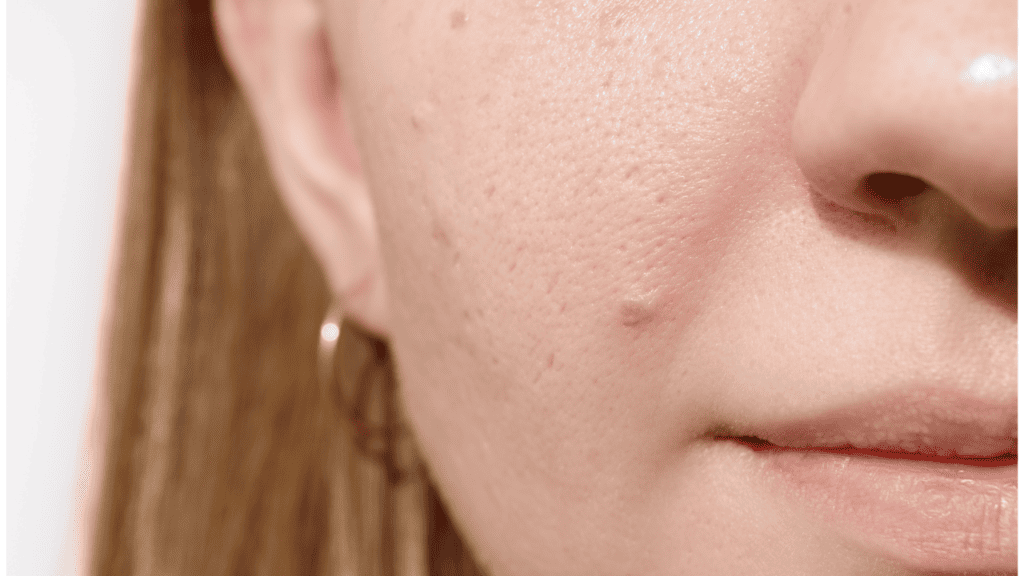
What are Boxcar Scars?
Boxcar scars are a type of atrophic scar, primarily resulting from the healing process of acne. They are characterized by their round or oval depressions with steep, vertical sides, resembling the shape of old-fashioned boxcars. Unlike other types of scarring, boxcar scars are wider and have a more pronounced pitted appearance, making them more noticeable and often a cause of concern for those affected.
Causes Behind Boxcar Scars
The primary cause of boxcar scars is severe acne, where deep, inflamed breakouts damage the collagen in the skin. When the skin does not regenerate enough collagen during the healing process, it leads to a loss of tissue and creates these depressed scars. Other causes can include chickenpox or conditions causing similar skin trauma.
Emotional Impact
Scars can significantly affect one’s self-esteem and emotional well-being. If you ever feel your scars leading to social anxiety, lowered self-confidence, and in some cases, depression, understand that this feeling is normal, and that the journey to healing is not just physical but also emotional.
Conclusion
While boxcar scars can be a challenging skin issue, there are multiple paths to improvement. From understanding their causes to exploring various treatment options, both professional and home-based, managing boxcar scars is a journey of care and patience.
Every skin is unique, and what works for one person may not work for another. It’s crucial to consult with a dermatologist to find the best approach for your specific needs. As you navigate this journey, remember the importance of emotional support and self-care. With the right combination of treatments, lifestyle changes, and a bit of patience, you can achieve the smoother, healthier skin you desire. Keep a positive outlook, and don’t hesitate to seek help and guidance along the way.
FAQS
Can boxcar scars completely disappear with treatment?
While treatments can significantly improve the appearance of boxcar scars, complete disappearance varies based on the scar’s depth and the treatment’s effectiveness.
Are home remedies effective for treating boxcar scars?
Home remedies, especially for mild scarring, can support skin health, but professional treatments are often recommended for more significant improvements.
How long does it usually take to see results from boxcar scar treatments?
The time to see results varies; some treatments show immediate improvements, while others, like laser therapy, may require several sessions over months.
